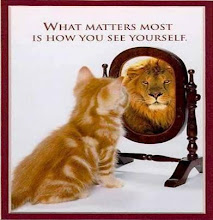How To Predict Exam Questions
The key to powerful Thinking is
powerful Questioning. Whenever you learn something, or
answer a question, ask, "Why?" If you can reason the answer without
spitting out, "Because XYZ is true," but by saying in basic terms,
the logic behind it for multiple steps, then you are thinking
critically. This involves a lot of thinking
backwards. You can apply it to anything from the MCAT to why your best
friend is upset that night. The more steps you can reason backwards, the more
proficient and comfortable you are with the subject (s). When students think critically, they think
deeply; they not only know the facts, but they take the additional step of
going beyond the facts to do something with them. Critical thinking involves reflecting on the information received,
moving away from “surface” memorization and toward deeper levels of learning.
·
The Problem: we need less than 5 points to go
from B student to A STUDENT STATUS!
o
Our current mapping method is great @ recalling
lots of information, but poor @ test taking, since it tends to focus on lots of
notes taking, but not enough on problem solving skills (CT).
o
By the nature and limitations of most exams, 90%
of student notes is less than 10% of all test questions
o
However, the study of 90% of test questions will
focus on 90% of exam questions!
o
Quest: if @ beg of semester, “similar” test
questions were distributed, how might grades have improved?
o
As such, since past test questions are
unobtainable, we must create our own!
·
Must have a Top-Down
Study Approach
o
Goal is to be Questions Driven and not Notes Focused – to build questions around topics! To challenge
yourself to anticipate the questions on the exam. To manipulate the main ideas in your mind by asking cluster
questions.
o
Idea is to be able to draft notes exclusively from
answering test questions
o
Must have a “Basket” of test questions for test
reviews (separate folder)
o
Goal is not to memorize but to learn to think
critically… to really understand the concepts and logic… you have to be able to
think thru the material
·
Five Critical
Thinking Study Goals:
1)
To improve CT skills by manipulating the
big ideas and concepts of a course by asking “Cluster Questions”.
2)
To be able to Predict Test Questions
3)
To accumulate a Basket of CT Questions
for every test reviews, leading up to the final examination.
4)
Develop mastery at accumulating and creating MCAT
style test questions.
5)
Transform from a B student to an A student
(i.e., less than 10 points!)
How To Qualify Test Questions
·
Questions should overlap several sub-topics
·
Questions must be thought-provoking and probing
(clever). Not instant memory recall, but rather, testing your overall, and
deeper, understanding of the big ideas or concepts.
·
Questions should promote evaluation and
synthesis of facts and concepts
·
Open-ended questions that are aimed at provoking
divergent thinking... explain,
describe, compare, why, how...
·
Questions should start or end with words or
phrases such as “explain,” “compare,” “why”
·
Higher-level
thinking questions that go beyond simple knowledge-level recall
·
Put yourself in the instructor's head – is this
the kind of “clever” question he might ask?
·
Focus on critical ideas - the ones that are most
important to understanding the chapter
or topic as a whole. Most teachers won't test you on picky details.
Sources for Anticipating Test Questions
·
Study Maps questions that probe a “deeper”
understanding of the big ideas or concepts.
·
End-of-chapter Exercises that test “overlapping”
topics.
·
Class Feedback that helps predict test
questions
·
Prior Quizzes & Tests that sets the
tone and direction of future exams
·
MCAT questions that encourages divergent
thinking
How to Measure Your Performance
·
Do you have a basket of test questions and is it
expanding exponentially as the semester progresses?
o
Are you able to automatically think of topics
and sub-topics in terms of clever “cluster” questions?
o
Are the CT cluster questions covering the entire
understanding of the chapter, which is, seeing the big picture?
o
If you were to map the answers from your
“clever” cluster questions, will it look similar to your regular chapter map? How
different is it from your chapter study map? Is it focused on questions that
might be asked on tests?
·
Are you able to challenge professors & students
with “thought-provoking” questions, in class?
o
Practice testing these “clever” questions on
others, and rate their responses: A-B-C (A = extremely clever, B = smart, C = ok)
o
What is the reaction of teachers, students, lab
instructors, etc., on the "cleverness” test feedback?
o
On rating score of A-B-C for cleverness, are
your CT questions good enough to be on an MCAT exams?
·
Are you able to accurately predict 90% of test
questions, form your basket of test questions?
o
Are you always scouring +90% in test range (A+)?
o
Are you spending most of your valuable study
time on Questions-Reviews, rather than notes memorization?
·
Are you beginning to uncover a “pattern” on how CT
questions are designed? Are you able to reformat this “general formula” to fit
other topics, and to be able to ask “standard” questions in multiple ways
(commonality approach)?
o
Can you re-create map notes exclusively from
these “clever” questions? Or do you still need your original chapter mapping
notes to form “clever cluster questions”?
·
Once clever tester system is internalized, are
you able to breeze thru science classes? That is, notice a significant
improvement in your study methods and test results?
·
What is your main source of finding clever questions?
o
What % of clever questions are you developing on
your own?
o
Can you easily, without much effort, convert
topics and sub-topics into CT questions?
o
At the end of a test, if all you had was your
predicted test questions (i.e., only notes developed from test questions),
would you have passed the exam?
o
Are you able to develop your notes exclusively from
test questions?
o
How can you improve the efficiency of your CT system
and accumulate MCAT style test questions?
o
How good are you at predicting actual test
questions (scale of 1-10)?
The Critical Thinking (CT) Study System
·
From Study Maps, develop +5 “big picture” CT
questions. The questions need to relate as a process (i.e., cover multiple
aspects of the chapter). These questions will be the roadmap of the chapter. The
purpose of “clever” cluster questions is to group logical representations
within your mind of various concepts by forming relationships. That is, to logically
think thru the chapter materials.
·
Bring the cluster questions to class. As the
professor covers the chapter, check each question that you feel the professor
has covered.
o
Whenever the professor has not touched
something, put a question mark next to it.
·
Every time you review your chapter notes add 5+
“clever” cluster questions by linking concepts to something else. You will
realize that you will see the material multiple, multiple, multiple times. But
each time that you see it, you add something new to it. In essence, you are always
adding newer and newer relationships.
·
Seek out relevant CT questions from MCAT books that
are organized by sub-topics
·
From chapter exercises, isolate questions that
cover several sub-topics (overlapping)
·
Put yourself in the head of the professor, and
ask if this is a question he would consider on a test?
·
For MCAT multiple-choice questions, it is just as
important to identify why the wrong answers are incorrect. You have to be able
to “reason out” the answer
choices to achieve mastery of the concept.
How to Ask Higher-Thinking CT Questions:
·
Under what conditions...
·
Which of the following...
·
What is the evidence...
·
What are some of the difficulties/complexities/
consequences...
·
Compare/Contrast...
·
What evidence/examples supports...
·
What might happen if...
·
How would you classify...
·
What are the functions/process/causes/
·
What is the relationship/differences/
·
If... Occurs, what happens...
·
What does theory X predict will happen...
·
Rank / list the ... Categories of...
·
What is the purpose / goal / agenda of...
·
Explain how these are related...
·
What steps are important to...
·
What are the implications of ___?”
·
Why is ___ important?”
·
What is another way to look at ___?”
·
Why did this happen...
·
What are the causes...
·
What would happen next if...
·
How does this affect...
·
Why is this important...
·
Does this make sense...
·
What does this mean..
·
What else can we learn from this...
·
How could this be used to...? What else can we
learn from this?
·
Why is this important?
·
How does this affect...?
·
What would happen next?
·
How can we look at this another way?
·
What if you compared it to...?
·
Why is this better (or worse) than...?
Developing Critical Thinking Skills By
Asking Probing Questions (an Example)
Great
critical thinking questions require students to evaluate information and draw
conclusions that are not readily
apparent in the text. This is usually easier to accomplish by using essay
questions, but essays can be time consuming for students to write and for you
to grade.
On Liberty
John Stuart Mill, 1859
“...The object of this Essay is to assert one very simple principle, as entitled to govern absolutely the dealings of society with the individual in the way of compulsion and control, whether the means used be physical force in the form of legal penalties or the moral coercion of public opinion. The principle is, that the sole end for which mankind are warranted, individually or collectively, in interfering with the liberty of action of any of their number, is self-protection. That the only purpose for which power can be rightfully exercised over any member of a civilized community, against his will, is to prevent harm to others. His own good, either physical or moral, is not a sufficient warrant. He cannot rightfully be compelled to do or forbear because it will be better for him to do so, because it will make him happier, because, in the opinions of others, to do so would be wise, or even right. There are good reasons for remonstrating with him, or reasoning with him, or persuading him, or entreating him, but not for compelling him, or visiting him with any evil, in case he does otherwise. To justify that, the conduct from which it is desired to deter him must be calculated to produce evil to someone else. The only part of the conduct of any one, for which he is amenable to society, is that which concerns others. In the part which merely concerns him, his independence is, of right, absolute. Over himself, over his own body and mind, the individual is sovereign”.
Examples of CT Questions:
“...The object of this Essay is to assert one very simple principle, as entitled to govern absolutely the dealings of society with the individual in the way of compulsion and control, whether the means used be physical force in the form of legal penalties or the moral coercion of public opinion. The principle is, that the sole end for which mankind are warranted, individually or collectively, in interfering with the liberty of action of any of their number, is self-protection. That the only purpose for which power can be rightfully exercised over any member of a civilized community, against his will, is to prevent harm to others. His own good, either physical or moral, is not a sufficient warrant. He cannot rightfully be compelled to do or forbear because it will be better for him to do so, because it will make him happier, because, in the opinions of others, to do so would be wise, or even right. There are good reasons for remonstrating with him, or reasoning with him, or persuading him, or entreating him, but not for compelling him, or visiting him with any evil, in case he does otherwise. To justify that, the conduct from which it is desired to deter him must be calculated to produce evil to someone else. The only part of the conduct of any one, for which he is amenable to society, is that which concerns others. In the part which merely concerns him, his independence is, of right, absolute. Over himself, over his own body and mind, the individual is sovereign”.
Examples of CT Questions:
A. Summary/ Definition:
o
What is J.S. Mill basically saying here?
o
What is
meant by "harm to others"?
o
What does
"remonstrating" mean?
B. Analysis Questions:
o
Why does Mill say what he says?
o
How do
Mill's ideas relate to the time period he's in?
o
What
evidence or reasons does Mill use to support his ideas?
o
How do
Mill's views relate to those of his contemporaries?
o
How does
On Liberty fit into the course at this point?
C. Hypothesis Questions:
o
How might Mill's ideas be different if he were
writing today?
o
What if
we applied this to a discussion of suicide?
D. Evaluation Questions:
o
Do I agree with J.S. Mill?
o
Is Mill
persuasive in his discussion of Liberty? Why?
o
What
would be the advantages of adopting Mill's views?
Applying a list of “question frames” to your work is really
only the beginning of critical thinking. As you progress through your major
area(s) of study and become a more critical thinker, it will become easier to
ask questions that are directly applicable to your work. This is partly the
development of awareness about the kinds of question your professors will be
asking and partly the development of awareness about your discipline and how students
(and professors) in that discipline are trained to think.
















